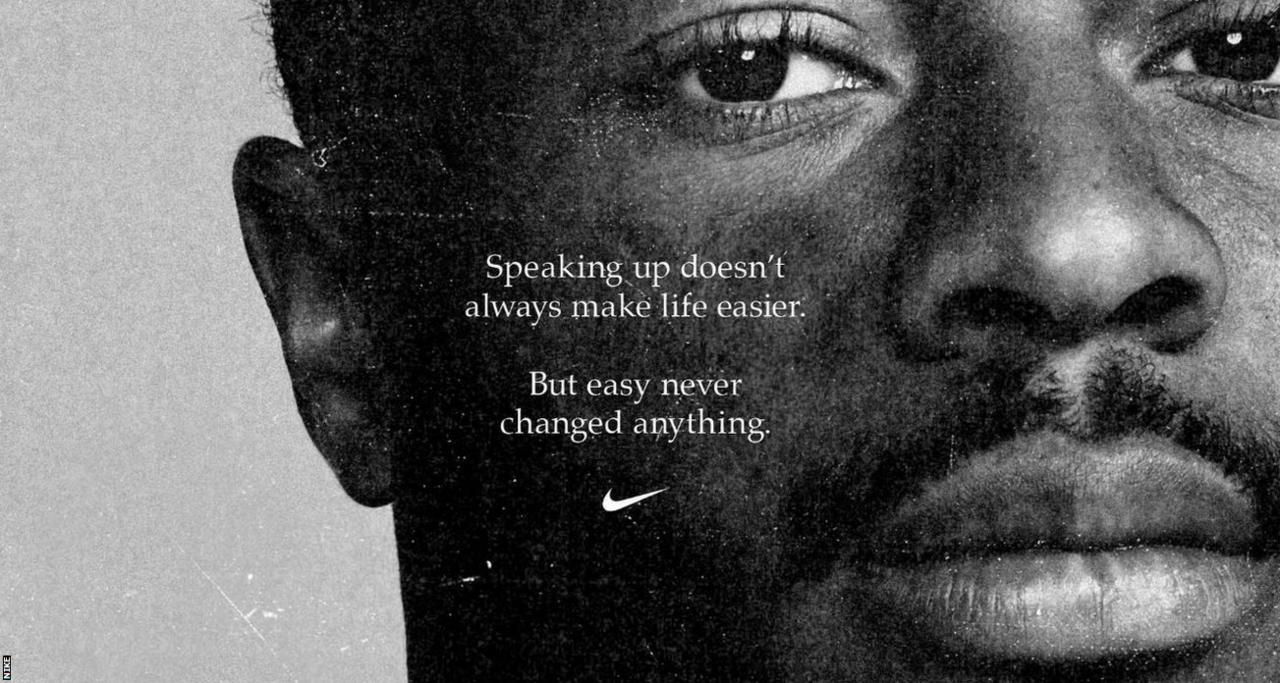Ruud Gullit says it is 'almost impossible' for black players to speak out about racism
- Published
Football Focus: Does football have a racism problem?
Black footballers find it "almost impossible" to speak out over racism because they are cast in a "victim role" when they discuss it, says former Chelsea manager Ruud Gullit.
Manchester City forward Raheem Sterling was subject to alleged racist abuse from Chelsea fans last week.
He said newspapers are helping to "fuel racism" by the ways in which they portray young black footballers.
"The biggest problem for us is to talk about it," Dutchman Gullit said.
"The moment you talk about it people say: 'He puts himself in a victim role.' But it's not that.
"If you want to have a head figure speaking out against racism, it's almost impossible for a black person to do that because people see them and say: 'It's him again, he's always moaning.'"
Former Netherlands midfielder Gullit said he would be "glad" to see someone like former Real Madrid and France player Zinedine Zidane, who is of Algerian descent, talk about the issue because that would give the discussion a "different vibe".
"I talk from a very privileged position and I am happy with the position I have, but I cannot speak for people who are not in my position, who are struggling," added Gullit, in an interview with BBC Sport's Richard Conway at the launch of the Lusail Stadium in Qatar.
"I hope things change and people see it is not because we want to complain but because it's there.
"I hope people who are in a different position to me get listened to."
England international Sterling, 24, became the face of a Nike Football advertising campaign, external launched on Saturday, in a similar way to how the sportswear company worked with former NFL quarterback Colin Kaepernick.
Nike posted a black and white close-up image of Sterling's face with the message: "Speaking up doesn't always make life easier. But easy never changed anything."
Kaepernick protested against racial injustice and police brutality by kneeling during the US national anthem and has been without a team since he opted out of his contract with the San Francisco 49ers in March 2017.

Former West Ham and Aston Villa midfielder Nigel Reo-Coker said he was "not surprised" more players did not come out in public support of Sterling.
"Raheem deserves support from his fellow pros, he has taken a big stand and done a very brave thing," he told Football Focus.
"It would be great if some other players would support him and have the belief and confidence to go out and be themselves.
"But in England, black players are still afraid to speak out because they don't want to be so-called 'blacklisted'."
Kick It Out head of development Troy Townsend said clubs were "dousing" players and preventing them from speaking out.
"I don't blame the players for not speaking up," the head of English football's anti-discrimination body said. "It is the environment already created that doesn't allow the players to show their true feelings.
"It goes to the people that make the decisions, the people that make the money - they are the ones saying, 'We can't have him saying that because look at the impact it will have on this football club'.
"We need to get the power of the players to start going, 'We're not accepting this anymore, we feel this is not being dealt with and in the right manner, we have a voice,' and for them to take the game on."
WATCH: Raheem Sterling comments 'a game changing moment' for sports journalism
Gullit said he had spoken to black players in England who see racism as an issue but felt they "don't get a chance" to speak about it.
He added they were concerned about the impact of speaking out on their chances of moving into management.
Following former Arsenal and England defender Sol Campbell's recent appointment at Macclesfield, there are eight Black, Asian and Minority Ethnic (BAME) managers in England's top four divisions.
"Their biggest issue is that they want to become a coach and it's not that they don't get the job - that can happen to anybody - it's that they don't get an interview," said Gullit.
"That's what hurts them the most."
Gullit also likened dismissals of black footballers talking about racism to "ridiculous" criticisms of the MeToo campaign against sexual harassment and abuse.
"It's like the MeToo movement - it happens, don't say that, 'Not every man is a bad man'," he said.
"You need to face these things - don't say it's just another woman that complains, don't make it ridiculous.
"It's a serious issue and you need to take it seriously."